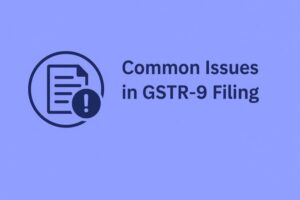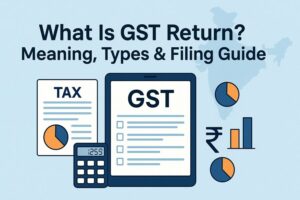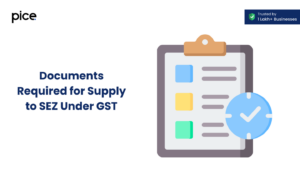All About GST on Merchant Trade Transactions
- 10 Jul 25
- 7 mins

All About GST on Merchant Trade Transactions
Key Takeaways
- Merchant exporters can avail a concessional 0.1% GST rate by fulfilling specific conditions, including exports within 90 days and under LUT/bond.
- Goods must be transferred directly to ports or export locations without entering domestic circulation for concessional rate eligibility.
- The tax invoice, shipping bill, and GSTIN must be accurately mentioned and submitted to the jurisdictional officer for compliance.
- Refunds can be claimed for unutilised Input Tax Credit (ITC) under zero-rated supply or inverted duty structure provisions.
- Merchant exporters who pay IGST on exports can still claim ITC refunds, but are not eligible for the 0.1% concessional rate.
The GST on merchant trade transactions or merchant exports can be at a concessional rate of 0.1%. A merchant exporter has to fulfil certain conditions to avail the concessional rate. One such condition includes exporting under a bond/LUT (Letter of Undertaking). Learn about these conditions in detail here to avail the concessional GST rate as a merchant exporter.
Merchant Exports Under GST Regulations
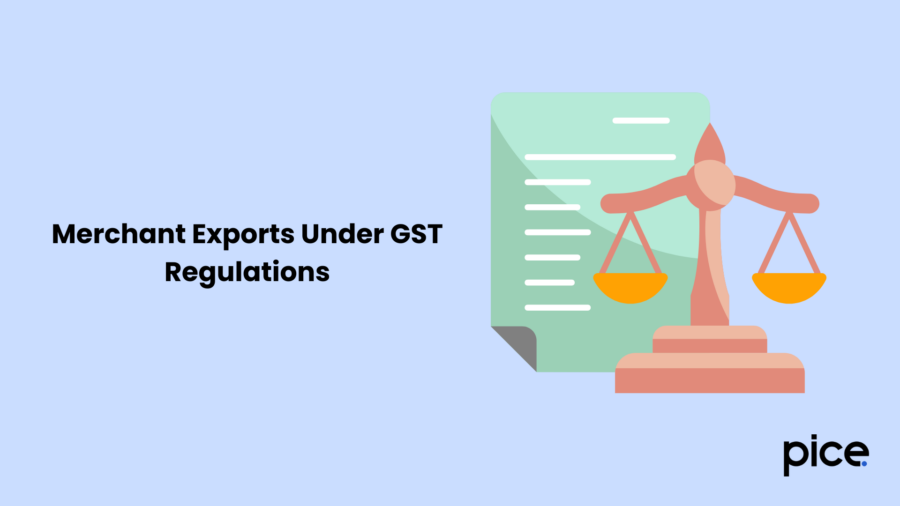
Merchant trade transactions involve the transfer of goods from one foreign country to another without allowing these goods to enter the Indian boundaries. Merchant trade or export transactions attract GST (Goods and Services Tax) based on different regulations.
Section 2 (108) of the CGST Act (Central Goods and Services Act) highlights that the supply of services/goods attracts GST if they fall under the taxable supply category. Further, Section 7 (5) of the IGST Act (Integrated Goods and Services Act) highlights that if a supplier is located within India while the place of supply is abroad, it is considered an inter-state supply.
As a result, merchant exports attract GST, wherein merchant exporters need to acquire GST registration.
Conditions to Avail Concessional Rates Under Merchant Exports
The government allows a concessional rate of 0.1% GST to merchant exporters if they fulfil the conditions mentioned below:
● The tax invoice provided for the procured goods needs to mention the GST rate as 0.1%.
● Goods in concern should be exported within 90 days from the date of tax invoice issuance.
● The shipping bill needs to contain the tax invoice number and GSTIN.
● They need to be registered with the Commodity Board or Export Promotion Council.
● You need to provide a copy of the order (at a concessional rate) to the jurisdictional officer pertaining to the registered supplier.
● Even if goods are bought from multiple suppliers, they need to be transferred from the place of supply to ports, airports, LCS and LCD directly.
● Once the export of goods is completed, you need to file a copy of the shipping bill or bill of export, followed by a proof of EGM and export report with the jurisdictional tax officer and registered supplier.
They need to export goods under bond/LUT without IGST payment.
Process for Merchant Exports
Here are the processes that merchant exporters need to follow:
● A merchant exporter can use LUT/bond, followed by claiming a refund of unutilised input tax credit.
● The concerned merchant exporter can export goods by paying off IGST, followed by claiming the refund. Notably, this process applies to exporters opting for the Special Relief Scheme at a concessional rate of 0.1%.
Refund Process in Merchant Exporter Involvement
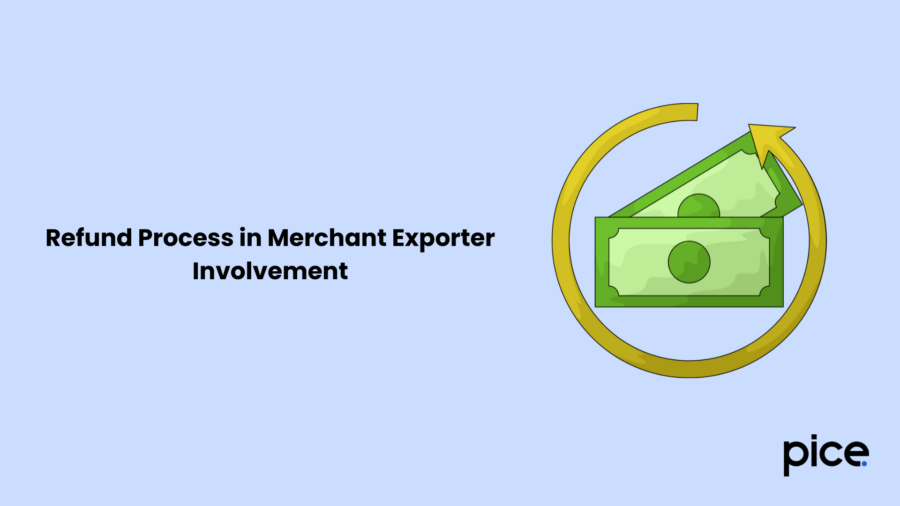
Here are the different scenarios and respective refund processes:
Scenario 1: When a Merchant Exporter Procures Goods at a Concessional Rate and Exports Without Tax Payment
In such a scenario, the supplier charges 0.1% GST for suppliers to the merchant exporter. Section 54 (3) of the CGST Act states that a merchant exporter can claim a refund of unutilised ITC for zero-rated goods and goods associated with an inverted tax structure at the end of the concerned tax period.
Scenario 2: When a Supplier Procures Goods from Another Supplier to Claim a Refund Under an Inverted Duty Structure
In this scenario, the first supply charges standard GST rates. However, the second supplier charges a concessional GST rate to the merchant exporter. As a result, the second supplier is not exporting but supplying goods to the concerned merchant exporter.
In such a scenario, the second supplier can raise ITC claims under Section 54 (3) under the inverted tax structure. Notably, in an inverted duty structure, the tax rate is higher for inputs than for outputs.
Scenario 3: Suppliers Supplying Goods to Merchant Exporters at Regular Rates and Exports Include IGST Payment
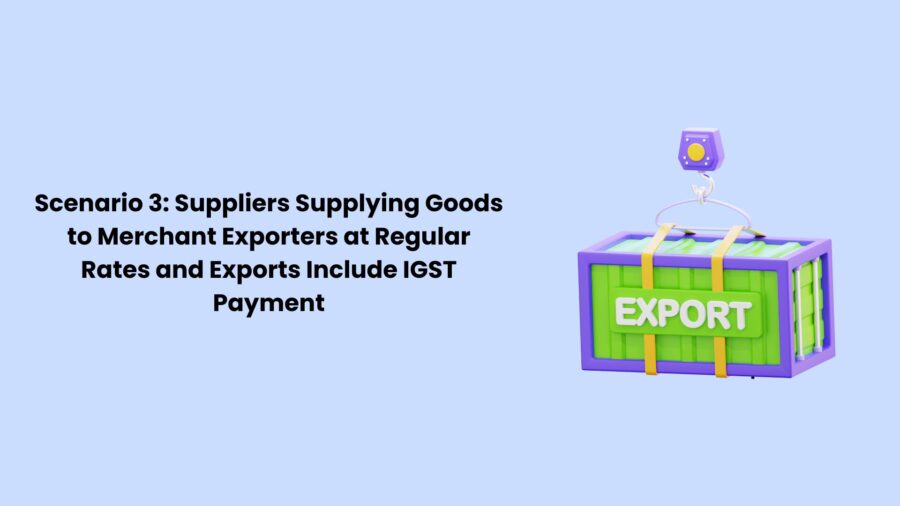
In such a scenario, the merchant exporter cannot avail the concessional GST rate of 0.1%. In addition, the concerned merchant exporter needs to pay IGST for exports. Thus, ITC can be utilised to pay output tax liabilities. Notably, merchant exporters can claim refunds for unutilised ITC and IGST paid for zero-rated supply.
Conclusion
Even though GST on merchant trade transactions can be at a concessional rate, there are instances where standard GST rates apply. In such a scenario, merchant exporters can claim input tax credits to optimise their output tax liabilities.
However, if a merchant exporter can avail 0.1% GST rate, they can seamlessly undertake exports with cost benefits. Ensure you comply with GST laws while exporting goods as a merchant exporter to avail the tax benefits.
💡If you want to streamline your invoices and make payments via credit or debit card or UPI, consider using the PICE App. Explore the PICE App today and take your business to new heights.
FAQs
What is the concessional GST rate for merchant exporters and who is eligible for it?
What documents are required to claim the concessional GST rate of 0.1%?
A copy of the tax invoice reflecting the concessional rate
Shipping bill with GSTIN and invoice number
Proof of export completion (EGM, export report)
Order copy to the jurisdictional officer
These documents help authorities verify the legitimacy of the concessional claim and track export compliance.
What is the process for merchant exporters to claim a GST refund?
Export under LUT/bond without paying IGST and then claim refund of unutilised Input Tax Credit (ITC).
Export with IGST payment, and then claim a refund of the IGST paid.
Refund claims are governed under Section 54(3) of the CGST Act, and depend on whether the export follows a zero-rated supply or involves an inverted duty structure.
 By
By 









